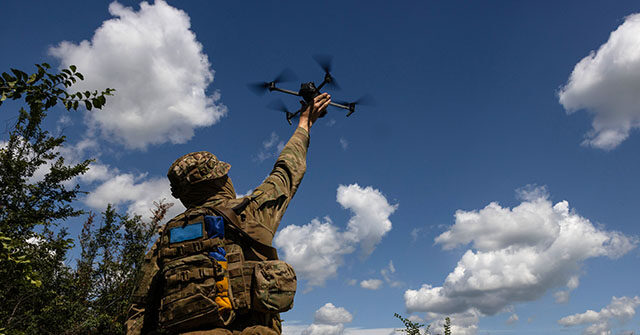In October 2023, the American drone manufacturer Skydio faced sanctions from China, which could disrupt its supply chain and hinder its ability to provide drones to the Ukrainian military. Skydio’s CEO, Adam Bry, characterized this as a pivotal moment for the drone industry, asserting that the Chinese government is wielding supply chains as instruments of geopolitical coercion. Bry’s communication with customers emphasized the seriousness of the situation, marking the sanctions as a significant threat to Skydio’s operations. The sanctions reportedly stem from U.S. arms sales to Taiwan and indicate a broader strategic effort by China to assert influence over the drone market, particularly against U.S. companies.
In a bid to mitigate the impact of these sanctions, Bry sought assistance from U.S. government officials, including a meeting with Deputy Secretary of State Kurt Campbell. While the specifics of Bry’s requests were not detailed, one potential solution proposed was establishing new battery supply channels through Taiwanese suppliers, which might alleviate some of the pressure caused by the sanctions. Notably, Skydio has risen to prominence as the largest drone maker in the U.S., producing a wide array of models tailored for military, law enforcement, and various domestic applications. The autonomous drones developed by Skydio leverage cutting-edge artificial intelligence (AI) technologies and have been a vital asset in supporting Ukraine’s war efforts against Russia.
Skydio’s commitment to aiding Ukraine has involved collaborations with organizations such as USAID to enhance the investigatory capabilities of Ukraine’s Office of the Prosecutor General. Their drones, equipped with 3D Scan technology, have been pivotal in creating detailed models of war-torn civilian structures, thereby facilitating the documentation of Russian war crimes. During a visit to Ukraine in July, Bry confirmed that his company’s drones had successfully mapped hundreds of damaged buildings, providing resources that would have otherwise been inaccessible to authorities. Additionally, Skydio has supplied Ukraine with over a thousand drones for various reconnaissance and intelligence-gathering tasks, and its latest model, the X10, has made notable advancements in resilience against electronic warfare.
The sanctions imposed on Skydio and its peers reflect a retaliatory stance from China, targeting companies that pose competition to its domestic industry, particularly commercial drone giant DJI. Reports indicate that Chinese officials directly intervened with Skydio’s battery suppliers to curtail their relationships with the American firm. Bry highlighted the difficulty of moving components out of China, noting that batteries, a crucial component for drone functionality, were among the last assets in their supply chain still based in the country. While Skydio has maintained a stockpile of batteries, the executive cautioned that new suppliers for these components are not expected to materialize until next spring.
Bry’s remarks also underscored the significance of the X10 drone for Ukrainian defense, necessitating careful management of battery supplies to ensure continued shipments amidst the sanctions. His statement reinforced Skydio’s resolve to resist Chinese encroachment on the drone market, asserting that China’s actions would not successfully diminish U.S. influence or competitiveness. Bry reiterated support for both Taiwan and Ukraine, affirming the company’s commitment to transitioning away from reliance on Chinese suppliers by engaging with partners in the West to develop alternative sources.
In a related context, DJI has been actively battling its classification as a Chinese military company by the U.S. Department of Defense (DoD), which has had significant repercussions for their business operations in America. The company has filed a lawsuit against the DoD, arguing that the designation has led to considerable financial losses and reputational damage. DJI expressed concerns that additional scrutiny from U.S. Customs and Border Protection under the Uyghur Forced Labor Prevention Act (UFLPA) has complicated their ability to fulfill orders in the U.S. market. Compounding these challenges, legislative efforts in Congress have also moved toward banning new DJI drones on national security grounds, further complicating the landscape for Chinese drone manufacturers operating in the U.S.

